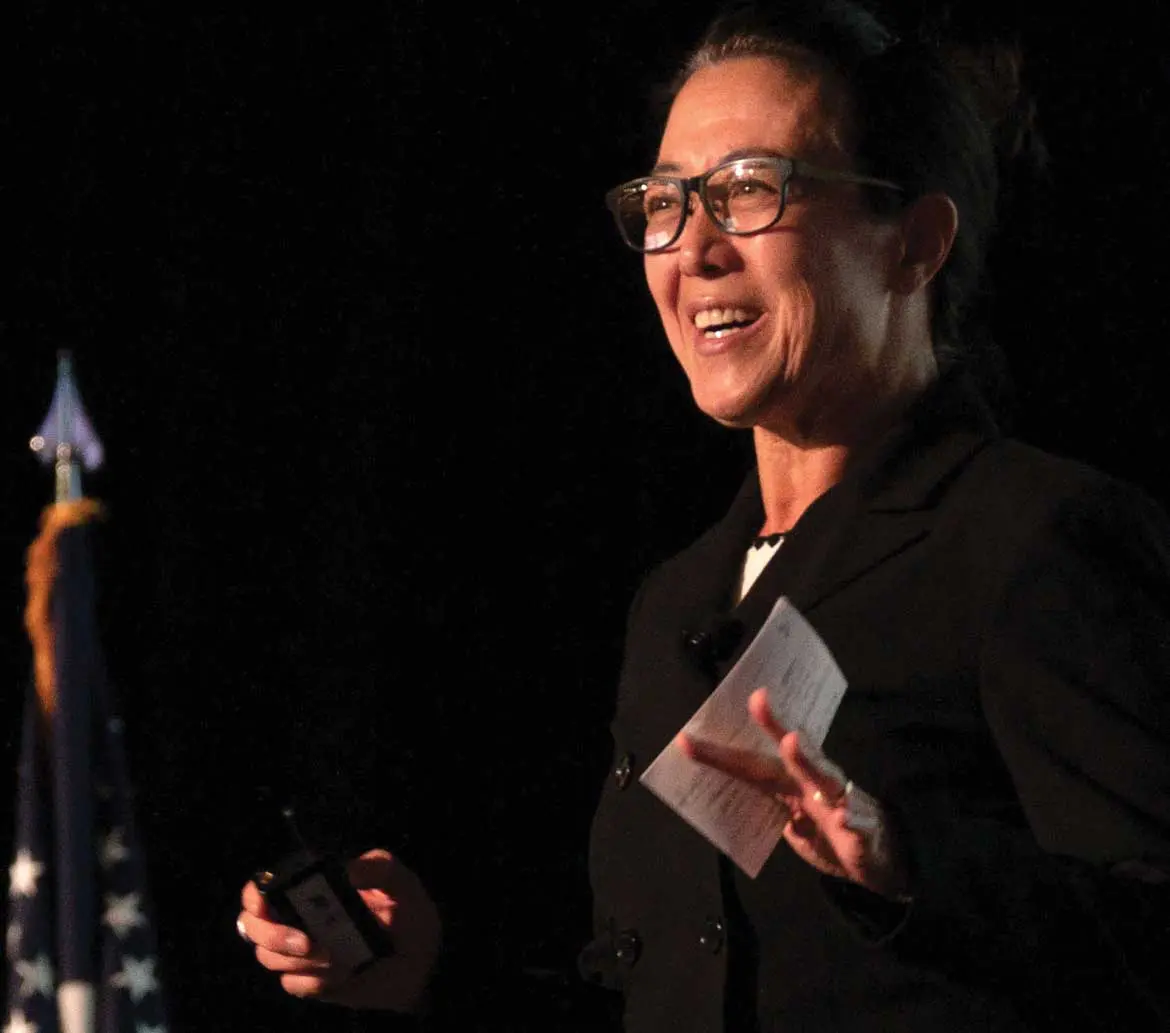CONNECT. STRENGTHEN. FIGHT.
By MRS. LAUREN FOSNOT, STAFF WRITER
With no shortage of large-scale, impactful world events to support and rising tensions in the Indo-Pacific to prepare for, it is not surprising that a central theme of the 55th Annual Airlift/Tanker Association (A/TA) Convention was “Readiness.†However, another theme recurring throughout the keynotes, seminars, and panels was the importance of “Human Connection.â€
Many incoming and current Mobility Airmen are members of Generation Z (Gen Z), the generation born between the mid-1990s and the early 2010s. According to Cigna’s 2018 U.S. Loneliness Index, a national online survey of 20,000 U.S. adults exploring the impact of loneliness in the United States, Gen Z was identified as the loneliest generation. Before social media use is quickly thrown under the bus, the survey also found that “levels of in-person interactions, physical and mental wellness, and life balance are more likely to predict loneliness than social media usage.†The causes of loneliness are subjects to be studied. Still, the effects of it are evident: Cigna’s report found that those who reported being less lonely were also more likely to be in better overall physical and mental health than those who reported being lonelier. In fact, according to Stanford University School of Medicine, strong social connections have been correlated with an increased chance of longevity, a stronger immune system, and are significantly helpful for overall emotional well-being.
One of the A/TA keynote speakers and a big believer in the power of human connection was Dr. Kimberly Dickman, U.S. Air Force Academy’s Center for Character and Leadership Development Assistant Professor.
Dickman emphasized the critical need for human connection for today’s Air Force and the future fight. She stressed that connection is a biological need. One supporting example she cited was the presence of increased protein found in sad tears as opposed to non-emotional tears (i.e., from chopping onions). Sad tears run down our cheeks more slowly, helping our sadness be socially visible—a theorized small way to increase the chance of human connection when it is needed the most.
We are social creatures meant to connect. However, this bonding is easier said than done. How can today’s Airmen and leaders combat loneliness?
First of all, simply get to know your teammates. This familiarity helps not only them, but it helps you identify the best person for the job—specifically in contingency operations. Quick decision-making and risk reduction are critical as Air Mobility Command tackles more and more chaotic events in austere locations. Knowing who is best equipped to handle an unforeseen crisis could significantly impact the success of a mission.
Secondly, foster a connection with the mission; this knowledge is a powerful means of uniting team members and strengthening forces. Each Airman comes from a unique background; the synergy from a united team is key to making informed decisions, especially in the face of fast-paced scenarios.
Lastly, understand where your teammates are, mentally and physically, and their skill sets. Before you judge generational differences, give them an opportunity to express their viewpoint. Not only will connecting with them be key to motivating them for the future fight, but it will help both you and them be less lonely. As Gen Mike Minihan says in his Mobility Manifesto, “Airmen are the Magic.†Each Airman has the power to enhance resilience and readiness across the Air Force.
For those looking for additional military resources, please visit: https://www.resilience.af.mil.

